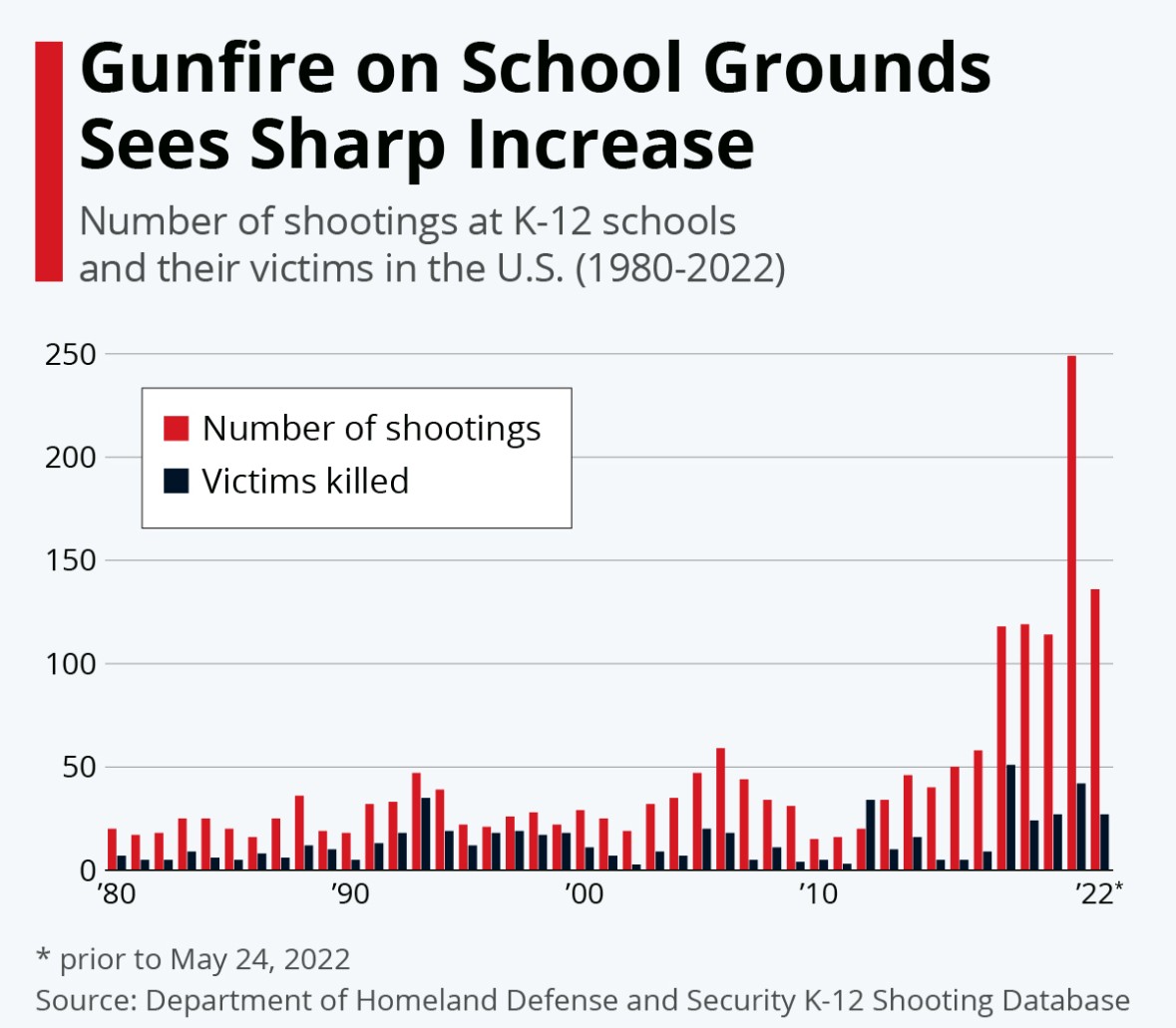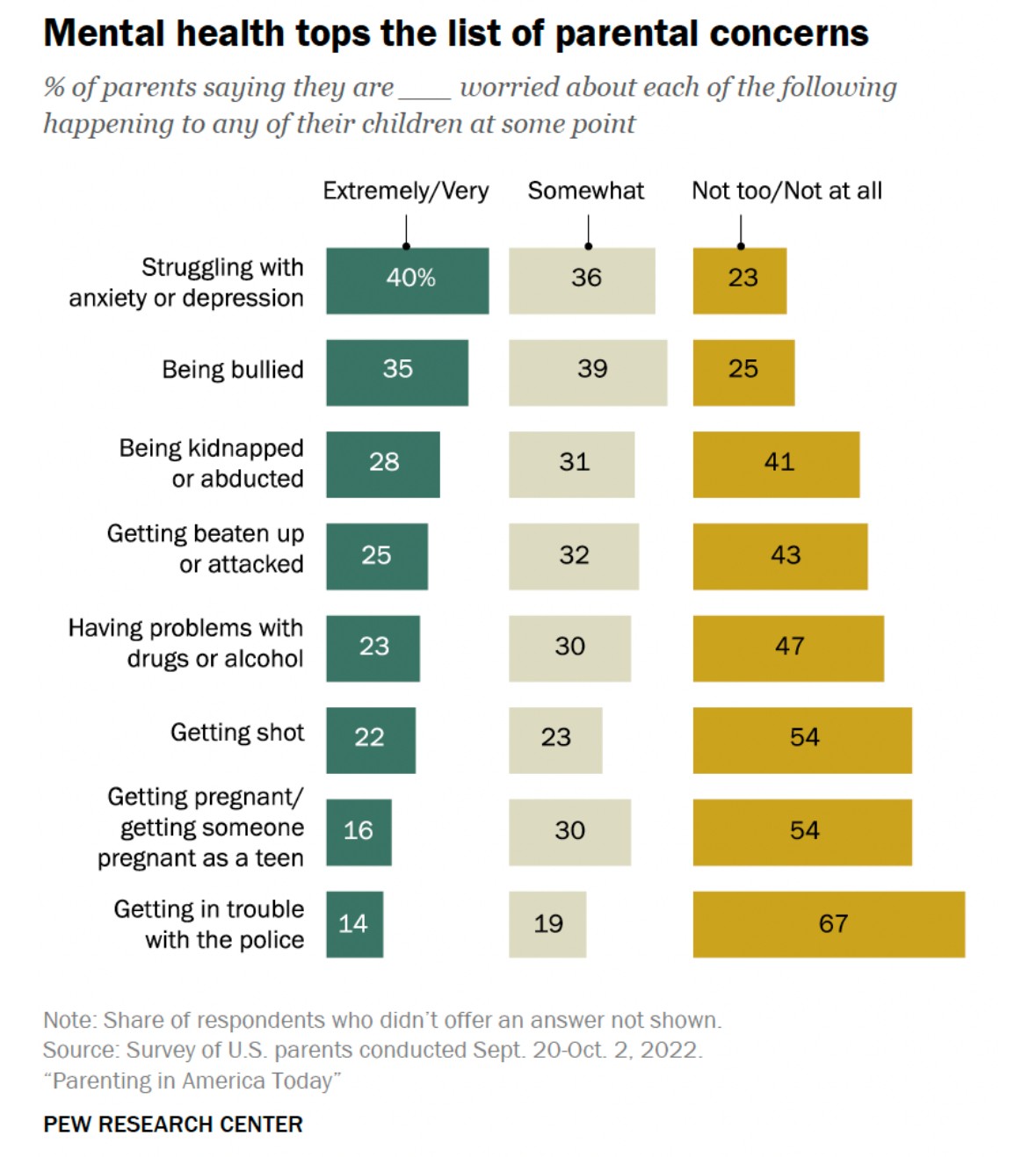Is the Virtue Project Research-Based?
Yes and no, but not in the traditional academic sense. This is not dissertation. This did not come about by combing through a stack of philosophy books.
The Virtue Project is based on caring adults living life with eyes and ears open with a deep concern for the next generation.
There are numerous books on the topic of virtues and how to raise children. I raised 12 children. In the process, I’ve read many books on the topic, but I’m not citing those books because they did not inspire this project.
The research data that is most upsetting are the trends in SUICIDE. It is on the increase for many age groups. The graph shows significant increase in suicide among school age children.
People take their lives for many reasons, but basically there is one umbrella reason. They are not happy. America has lost the understanding of the Pursuit of Happiness and the vision of hope to continue to live. We are starting to see this more and more in society.


What are Your Sources?
Here are the real-world sources that inspired the Virtue Project:
- A 2025 photograph of the suicide-prevention fencing taken by my son of the river bridge at the University of Minnesota.
- Fencing was not there when I attended in 1985-1990.
- We need to ask, "why?"
- What has changed?
Sources Continued
- Conversations with educators over the past 25 years as a father of 12 children. From homeschooling to private schools and public schools, I know the views of each camp.
- Firsthand observations of changes with children from 1995 to 2025.
- Media coverage of school shootings has shown a stark increase in violence in public schools.
- What is this graph telling us?


Sources Continued
- A story my 6th-grade son told me about a recent school fight
- one kid attacked another,
- an accomplice recorded it on his phone,
- the video was share
- the attacked child was left unconscious on the bathroom floor.
- Suicide prevention literature from AFSP.
- An interview with a Minnesota school board member that told me, “I’m quitting. I’m not sure our school system is preparing kids for the world anymore.”
Sources Continued
- Countless conversations with parents about concerns.
- A recent survey from the Pew Research Center shows significant Virtue problems are at the front and center of the minds of parent with children in the public school systems.
- Every parent want to send their child to a classroom where this is taught and accepted by their child and the children around them:



Sources Continued
“Moral virtue comes about as a result of habit… we become just by doing just acts, temperate by doing temperate acts, brave by doing brave acts.” - Aristotle
“Education must aim at the complete development of the human personality and to the strengthening of respect for human rights and fundamental freedoms.”
Universal Declaration of Human Rights, Article 26
https://www.un.org/en/about-us/universal-declaration-of-human-rights
Is the Virtue Project Peer-Reviewed?
Yes, all of society, throughout all of history, has identified core virtues like respect, honesty, responsibility, and kindness as foundational in the development of a healthy human being.
The need for children to be taught virtues is well established:
- Parent-reviewed (ask any parent trying to raise a decent human being. Babies do not come into this world with manners.)
- Teacher-reviewed (Ask any educator trying to manage a classroom. Listening skills are taught.)
- Industry-required (Ask any employer who wants to hire someone. Is it important for people they hire to be respectful, honest, and responsible? Of course, it is important. It is more than important. It is a necessity!! We don’t need a dissertation on that. It’s a well-established fact. People are fired every day for lack of virtue.)
Real Life - Tested Examples from Experts
The Lessons Page is not just a resource. It’s meant to be a collaborative space for experts to share with other experts in an easy-to-follow path not as robots, but as living feeling, caring humans.
It’s designed to gather lessons from licensed educators who are seeing success in their classrooms not just academically, but success with formation of character. These are teachers who know how to motivate students toward:
- Belonging
- Caring
- Respect
- Kindness
- Self-control
- Honesty
- Responsibility
All while still hitting their academic targets.
The Lessons Page is meant to be expert-to-expert sharing of classroom wisdom from the front lines using modern technology, made available to others who are trying to lift every student, not just manage the day.
"The teacher explores and applies instructional design principles to create innovative digital learning environments that engage and support learning." - Minnesota Rules, Part 8710.2000, Subpart 4, Item I
"The teacher understands the relationship between motivation and engagement and knows how to design learning experiences using strategies that build student self-direction and ownership of learning." - Minnesota Rules, Part 8710.2000, Subpart 2, Item B
We Can't Pass-on What We Do Not Believe Ourself

The Problem
Let’s be honest - academics alone, without virtues built within the student, does not work. We have enough proof of this.
A classroom with one or more dysfunctional, disruptive students makes academic learning more difficult or impossible. Teachers become frustrated and exhausted. Other students lose focus. The quality of education drops, and the pathway to opportunity narrows.
For kids growing up in an economically challenged environment, this is especially damaging. The classroom should be the great equalizer but instead, it can become another space where the odds are stacked against them.
Quotes that helped shape this vision:
“Intelligence plus character—that is the goal of true education.” – Martin Luther King Jr.
“We are what we repeatedly do. Excellence, then, is not an act, but a habit.” – Aristotle
“Character is much easier kept than recovered.” – Thomas Paine
Quotes that helped shape this vision:
“To educate a man in mind and not in morals is to educate a menace to society.” – Theodore Roosevelt
“Virtue is not left to stand alone. He who practices it will have neighbors.” – Confucius
“Teach the children so it will not be necessary to teach the adults.” – Abraham Lincoln
The Solution
Virtue training seeks to level the playing field. Not by handing out more worksheets, or punishment.
But by teaching self-discipline, kindness, respect, and internal motivations that make learning possible.
If we don’t fix this:
- The wealthy will continue to secure top-level education for their kids that is safe, focused, and uninterrupted.
- The rich kids will get good jobs
- The poor will remain poor, and the gap will grow wider.
- The kid from the broken home will fall further behind not for lack of intelligence, but for lack of peace, structure, and belief in themselves.
We can change this.
Not with more programs.
Not with more pressure.
But with a simple cultural shift back to something ancient and essential.
The Call to Action
If you’re a licensed teacher with real, time tested examples, who believes this matters:
Join us. Submit a lesson that worked for you. Share an idea. Start a conversation.
Let’s fix what we all know is broken.
Not later.
Now.
